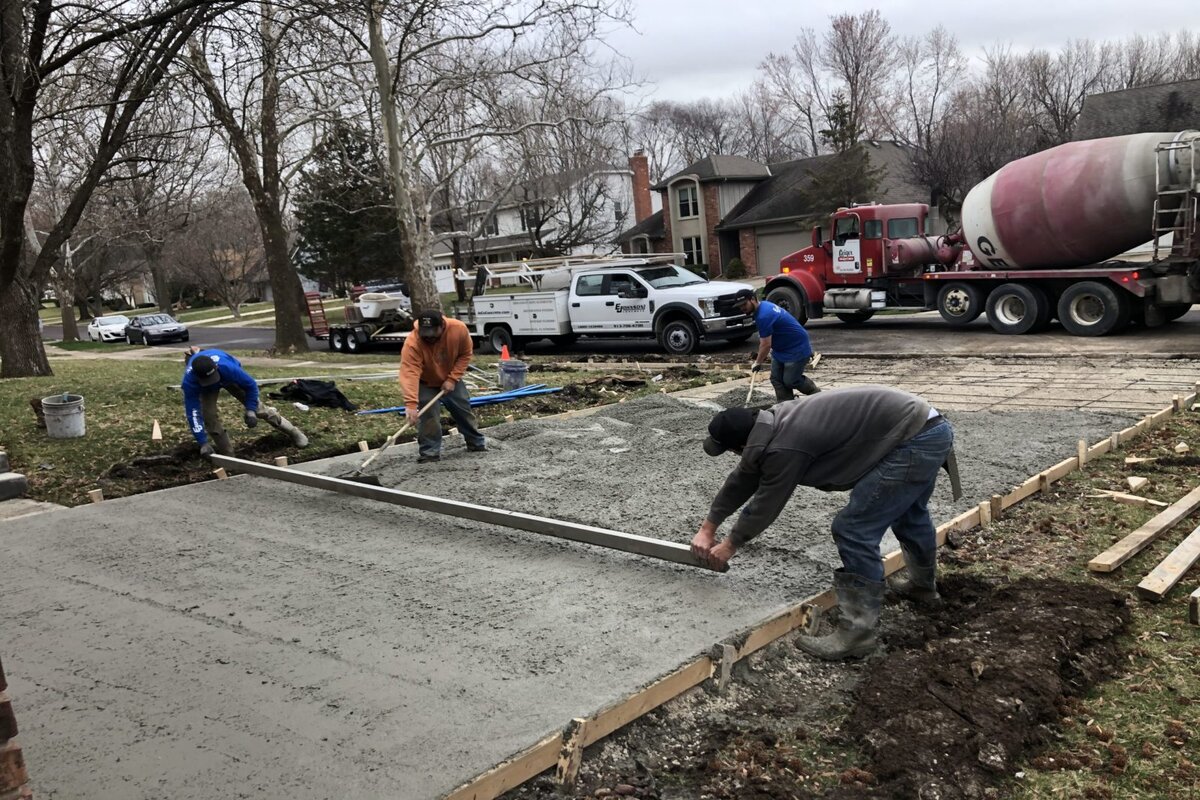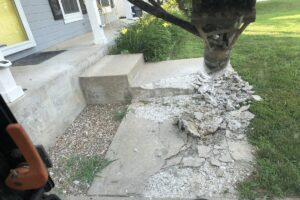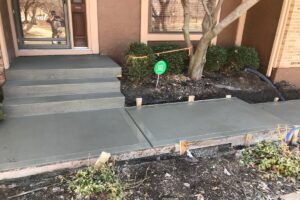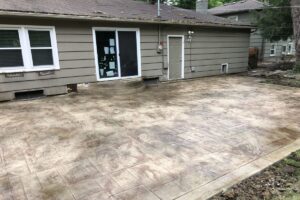The words cement and concrete are often used interchangeably because people assume they refer to the same thing. However, there is a significant difference between the two words. Understanding the distinction between concrete and cement makes it easier to understand the services our team at Johnson Concrete offers.
Are Cement And Concrete The Same Thing?
Put shortly, no, concrete and cement are not the same things. In fact, cement is an ingredient included in concrete mixtures. Further, concrete is a combination of paste and aggregates. And the aggregates include sand, crushed stone, or gravel, while the paste is a balance of water and portland cement.
Cement makes up between 10 and 15 percent of a concrete mixture. And through a process called hydration, the water and cement harden and bind the other aggregates to a dense mass. What many people don’t know is that the hardening process continues for several years, meaning concrete gets stronger as it gets older.
What Is Portland Cement?
Portland cement is a generic term for the type of cement used in almost all kinds of concrete. Many people think portland cement refers to a brand name, but that is not true.
Think of how stainless is a type of steel and sterling is a type of silver; it’s the same for portland cement.
Can You Control The Strength Of Concrete?
Yes, you can control the strength of concrete. The simplest way to add strength to concrete is to add cement. Additionally, the ratio of water to cement is another way to control the strength of concrete.
The higher the water-to-cement ratio is, the weaker the concrete will be. Essentially, a concrete mixture is adversely affected when you add more water.
That’s why our team uses a water diluting solution at Johnson Concrete to lessen the amount of water in a mixture.
Is Concrete A Good Patio Material?
Stamped concrete patios are one of the numerous concrete services we offer at Johnson Concrete. Stamped concrete patios come with several advantages that make them an excellent investment (see below).
Moreover, the other concrete services we provide at Johnson Concrete include the following:
- Commercial concrete services
- Residential concrete services
- Garage floors
- Sidewalks and steps
- Driveways
What Are The Advantages Of Stamped Concrete?
Stamped concrete comes with several benefits. For instance, stamped concrete patios are more affordable than other types of patios. While stamped concrete costs between $15 and $25 per square foot, other materials like pavers cost around $50 per square foot.
Also, stamped concrete is incredibly easy to maintain. That said, regular sweeping and rinsing with a garden hose is an excellent way to protect stamped concrete. Additionally, ensuring you seal your patio every two to three years preserves its condition.
Overall, a stamped concrete patio should last around 25 years, given that it is installed correctly and maintained in the right manner. Although taking the extra time to perform maintenance may seem tedious, it’s a great way to protect your investment.
Are There Disadvantages Of Stamped Concrete?
As great as stamped concrete is, there are a couple of disadvantages to consider before purchasing a new patio.
First, stamped concrete can get damaged by freeze and thaw cycles and ice salts. Unfortunately, there isn’t much you can do about the natural weather, but the maintenance steps listed above will help.
Also, repairing stamped concrete is challenging, even for an experienced contractor. Further, it can be difficult to match the precise color of your stamped concrete during a repair.
Hire The Top-Rated Cement And Concrete Experts
At Johnson Concrete, our team is experienced in all things related to concrete demolition and installation. We professionally install new sidewalks, patios, driveways, and more using durable concrete.
So, don’t waste any more time; contact our team of professionals today to get a quote, discuss cement and concrete, and see our array of products!




